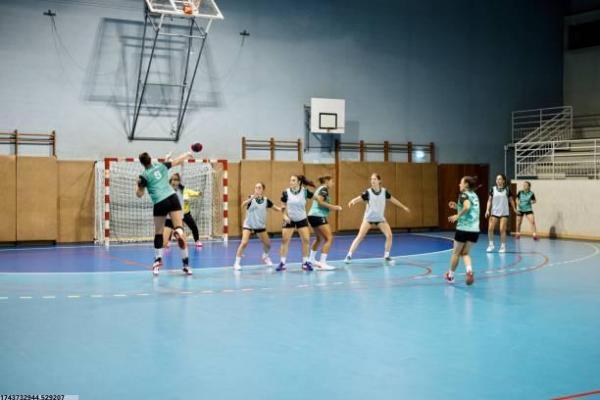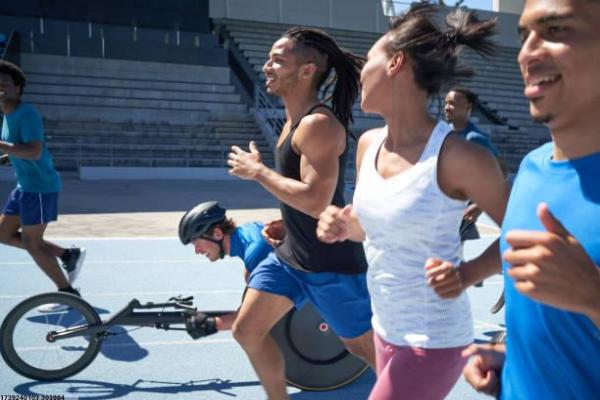用英语介绍如何提高体育项目能力

Improving your abilities in a sport involves a combination of physical training, mental preparation, and strategic planning. Here are some steps to help you enhance your performance in any sport:
1. Set Clear Goals: Define what you want to achieve. Whether it's improving your speed, strength, accuracy, or overall fitness, having clear goals will guide your training.
2. Consistent Practice: Regular practice is key. Dedicate time each day or week to focus on specific skills or drills related to your sport.
3. Strength and Conditioning: Work on building strength and endurance. This can include weightlifting, plyometrics, and cardiovascular exercises tailored to your sport.
4. Technical Skills: Focus on the technical aspects of your sport. This might involve working on your technique, such as your swing in golf or your serve in tennis.
5. Flexibility and Mobility: Incorporate stretching and mobility exercises to improve your range of motion and reduce the risk of injury.
6. Nutrition: A balanced diet is crucial for athletic performance. Ensure you're getting enough protein, carbohydrates, and fats, as well as essential vitamins and minerals.
7. Rest and Recovery: Allow your body to rest and recover. Overtraining can lead to burnout and injuries. Make sure to include rest days in your training schedule.
8. Mental Preparation: Train your mind as well as your body. Visualization, positive selftalk, and meditation can help improve focus and reduce anxiety.
9. Watch and Learn: Study professional athletes or videos of your sport to learn new techniques and strategies.
10. Get Professional Guidance: Consider working with a coach or trainer who specializes in your sport. They can provide personalized feedback and create a training plan tailored to your needs.
11. Stay Hydrated: Drink plenty of water before, during, and after your workouts to stay hydrated and perform at your best.
12. Monitor Your Progress: Keep track of your training sessions, improvements, and any challenges you face. This will help you adjust your training plan as needed.
13. Stay Motivated: Find ways to stay motivated, whether it's setting small achievable goals, training with friends, or rewarding yourself for reaching milestones.
14. Adapt and Evolve: Be willing to adapt your training methods and strategies as you progress. What works for one person may not work for another, so it's important to find what works best for you.
15. Enjoy the Process: Remember to enjoy the journey of improving your skills. Sports should be fun and rewarding, so don't forget to celebrate your achievements along the way.
Introduction to Enhancing Sports Performance
Improving sports performance is a goal for many athletes, whether they are professionals or amateurs. The journey to enhance one's abilities in a sport involves a combination of physical training, mental preparation, and strategic planning. In this article, we will explore various methods and techniques to help athletes of all levels boost their performance.
Physical Training and Conditioning
Physical training is the foundation of sports performance improvement. It involves structured exercises that target specific muscle groups, enhance endurance, and improve overall fitness. Here are some key aspects to consider:
Strength Training: Building muscle strength is crucial for many sports. Weightlifting, resistance bands, and bodyweight exercises can help athletes develop the power and stability needed for their respective sports.
Endurance Training: Endurance is vital for sports that require prolonged physical activity. Activities like long-distance running, cycling, and swimming can improve cardiovascular fitness and stamina.
Flexibility and Mobility: Stretching and yoga can enhance flexibility, reducing the risk of injuries and improving performance. Dynamic stretches before workouts and static stretches after workouts are both beneficial.
Speed and Agility Training: Sports that require quick movements and changes in direction benefit from speed and agility training. Drills and exercises that focus on footwork, coordination, and reaction time can be highly effective.
Mental Preparation and Visualization
Mental preparation is just as important as physical training. Here are some strategies to enhance mental focus and confidence:
Visualization: Athletes can improve their performance by visualizing successful outcomes. This technique involves imagining themselves executing their sport perfectly and achieving their goals.
Goal Setting: Setting clear, achievable goals can help athletes stay motivated and focused. Goals should be specific, measurable, attainable, relevant, and time-bound (SMART).
Positive Self-Talk: Athletes should practice positive self-talk to build confidence and overcome negative thoughts. Affirmations and mantras can be powerful tools in this regard.
Stress Management: Learning to manage stress is essential for peak performance. Techniques such as meditation, deep breathing, and mindfulness can help athletes stay calm and focused under pressure.
Nutrition and Hydration
Nutrition and hydration play a critical role in sports performance. Here are some tips to ensure athletes are fueling their bodies correctly:
Balanced Diet: A well-balanced diet that includes a variety of fruits, vegetables, whole grains, lean proteins, and healthy fats is essential for optimal performance.
Hydration: Staying hydrated is crucial, especially during intense physical activity. Athletes should drink water throughout the day and during workouts to maintain proper hydration levels.
Pre-Workout Nutrition: Consuming the right nutrients before a workout can enhance performance. Carbohydrates, proteins, and fluids are important components of a pre-workout meal or snack.
Post-Workout Nutrition: Replenishing nutrients and fluids after a workout is essential for recovery and muscle repair. A balanced meal or snack that includes proteins and carbohydrates should be consumed within 30 minutes to an hour after exercise.
Training Regimen and Rest
A well-structured training regimen is essential for continuous improvement. Here are some tips to consider:
Consistency: Regular training is key to progress. Athletes should establish a consistent training schedule and stick to it.
Rest and Recovery: Adequate rest and recovery are crucial for avoiding overtraining and injuries. Athletes should incorporate rest days and active recovery sessions into their training plan.
Professional Guidance: Seeking the advice of a coach or sports trainer can provide personalized guidance and help athletes reach their full potential.
Conclusion
Improving sports performance is a multifaceted process that requires dedication, discipline, and a holistic approach. By focusing on physical training, mental preparation, nutrition, and rest,











 关闭返回
关闭返回